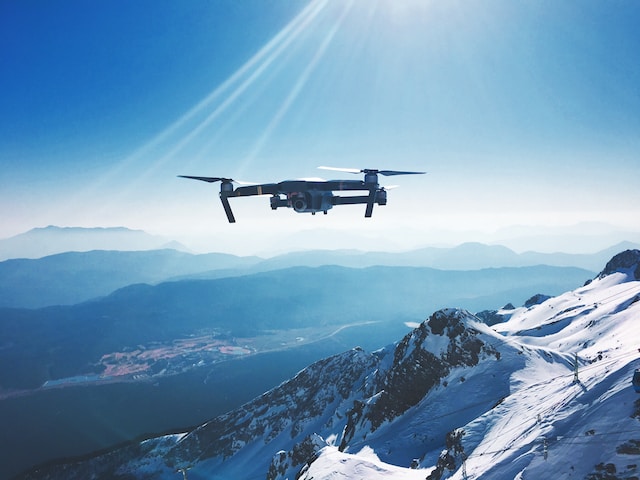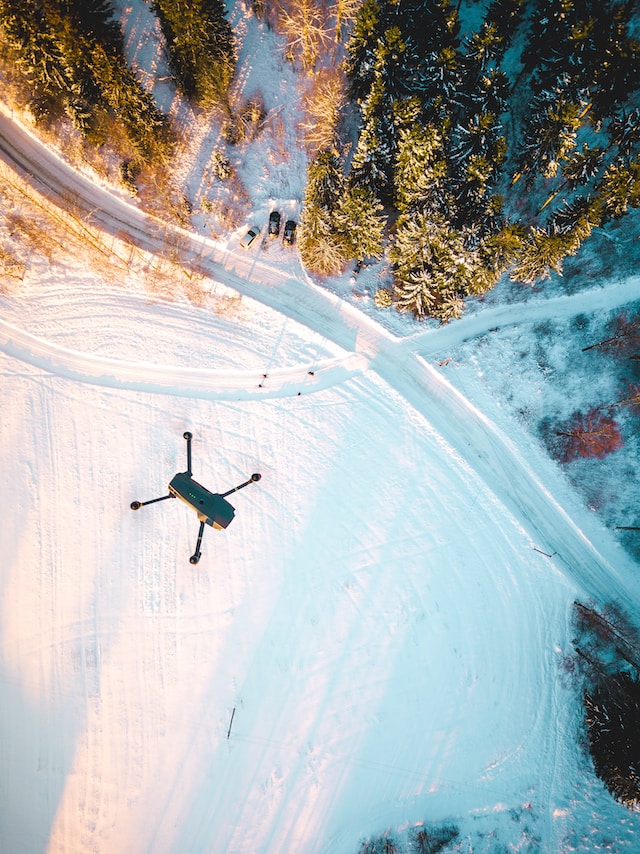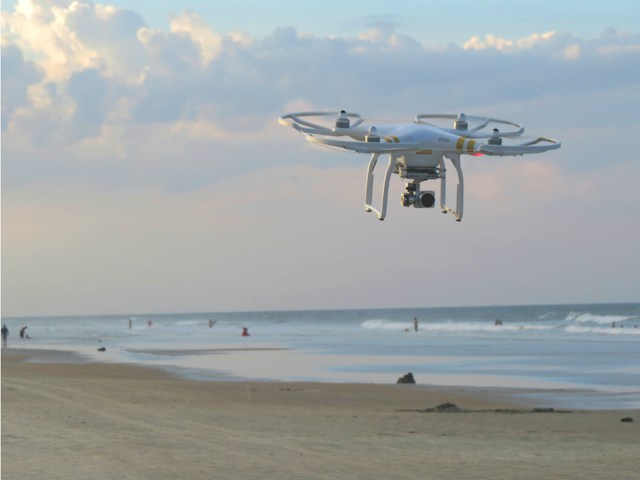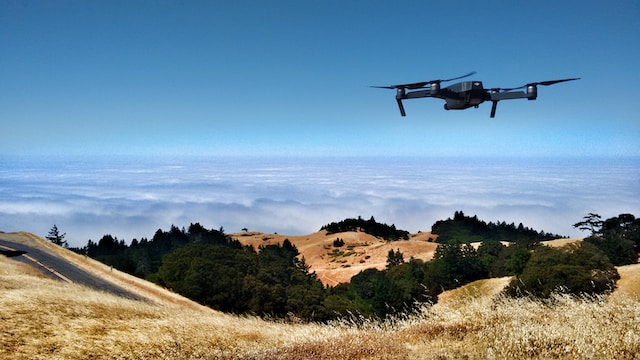
In the ever-evolving landscape of technology, one industry that has taken flight—quite literally—is the drone industry. Drones, or Unmanned Aerial Vehicles (UAVs), have transcended their initial military applications and have become integral in various sectors, opening up a plethora of career opportunities. For high school aerospace engineering students with a passion for innovation and a love for the skies, the drone industry might just be the perfect realm to explore.
1. The Rise of Drones: A Glimpse into the Industry
Over the past decade, drones have shifted from being mere gadgets for hobbyists to becoming indispensable tools across diverse fields. From agriculture to filmmaking, environmental monitoring to package delivery, the applications of drones are as vast as the skies they traverse. This surge in drone usage has created a demand for skilled professionals who can design, build, and operate these unmanned marvels.
2. Educational Pathways: Nurturing Tomorrow’s Drone Experts
For high school students aspiring to enter the drone industry, a solid foundation in aerospace engineering is crucial. Pursuing a degree in aerospace engineering or a related field, such as electrical engineering or computer science, provides the necessary knowledge and skills to understand the intricacies of drone technology.
Several universities and technical institutes offer specialized programs in drone technology or unmanned systems. These programs cover a range of topics, including aerodynamics, robotics, control systems, and data analysis—key components in the development and operation of drones. Aspiring professionals can also opt for internships or co-op programs to gain hands-on experience and build a network within the industry.
3. Diverse Career Paths: Where Can Drones Take You?
The drone industry is not a monolith; it’s a vast ecosystem with a multitude of career paths. Let’s explore some exciting avenues that high school aerospace engineering students can consider:
- Drone Design and Development: Engineers in this field focus on creating the physical structure and components of drones. They work on aerodynamics, materials, and propulsion systems to enhance drone performance
- Flight Operations: Piloting drones requires a unique set of skills. Professionals in this field operate drones for various purposes, such as aerial photography, surveying, or surveillance.
- Data Analysis and Mapping: Drones generate vast amounts of data during flights. Specialists analyze this data for mapping, surveying, and environmental monitoring purposes, providing valuable insights to different industries.
- Software Development: Drones are heavily reliant on sophisticated software for navigation, control, and data processing. Software engineers in the drone industry design and develop the algorithms that make drones intelligent and efficient.
- Regulatory Compliance: As the drone industry grows, so does the need for professionals who understand and navigate the complex web of regulations. Careers in this field involve ensuring compliance with aviation laws and obtaining necessary permits for drone operations.
- Research and Innovation: Advancing drone technology requires continuous research and development. Professionals in research roles work on cutting-edge projects to push the boundaries of what drones can achieve.
- Agricultural Applications: Drones are increasingly used in precision agriculture for crop monitoring, pest control, and yield prediction. Specialists in this field combine their knowledge of aerospace engineering with a deep understanding of agricultural processes.
- Search and Rescue Operations: Drones play a vital role in search and rescue missions, especially in challenging terrains. Professionals in this field operate drones to locate missing persons or assess disaster-stricken areas.
- Entertainment Industry: Film and television production have embraced drone technology for capturing breathtaking aerial shots. Careers in this sector involve operating drones to capture cinematic sequences.
- Delivery Services: Companies like Amazon are exploring drone delivery services. Engineers and operators in this field work on developing and implementing efficient delivery drone systems.
4. The Future of Drone Technology: What Lies Ahead?
As technology continues to advance, the drone industry is poised for even greater innovation. High school aerospace engineering students entering this field can look forward to being at the forefront of technological breakthroughs. Whether it’s the development of fully autonomous drones, integration of artificial intelligence, or the expansion of urban air mobility, the possibilities are vast and exciting.

5. Q&A Section: Connecting the Dots for High School Aerospace Engineering Students
1. Can I pursue a career in the drone industry with a general aerospace engineering degree?
Absolutely! Many professionals in the drone industry have a background in aerospace engineering. Specialized knowledge in drone technology can be gained through internships and on-the-job experience.
2. Are there scholarships specifically for students interested in drone technology?
Yes, several organizations offer scholarships for students pursuing degrees in fields related to drone technology. Look for opportunities from industry associations, companies, and government agencies.
3. What programming languages are essential for a career in drone software development?
Python, C++, and Java are commonly used in drone software development. Familiarity with these languages will give you a strong foundation.
4. Can I start working with drones while still in high school?
Absolutely! Look for local drone clubs or organizations that offer workshops and events. Building your own drone as a project can also be a great hands-on experience.

5. Are there ethical considerations in the drone industry?
Yes, ethical considerations, such as privacy and safety, are crucial in the drone industry. Professionals must be mindful of the impact of drone use on individuals and society.
6. What skills are employers looking for in drone design and development roles?
Employers seek skills in aerodynamics, materials science, and proficiency in CAD (Computer-Aided Design) software. Problem-solving and creativity are also highly valued.
7. How can I stay updated on the latest advancements in drone technology?
Follow industry publications, join online forums, and attend conferences or webinars. Networking with professionals in the field can also provide valuable insights.
8. Can I work internationally in the drone industry?
Yes, the drone industry is global. International experience can be an asset, especially if you’re interested in working on projects with a global impact.
9. What role do drones play in environmental conservation?
Drones are used in environmental monitoring, wildlife conservation, and anti-poaching efforts. They provide a non-intrusive way to gather data and protect ecosystems.
10. Are there opportunities for entrepreneurship in the drone industry?
Absolutely! Many successful drone companies started as entrepreneurial ventures. Identifying a niche or solving a specific industry problem can lead to exciting entrepreneurial opportunities.
11. How can I contribute to the advancement of drone technology as a student?
Engage in projects, internships, or research related to drone technology. Stay curious, explore new ideas, and don’t be afraid to push the boundaries of what you think is possible.
12. What safety measures are in place for drone operations?
Safety is paramount in the drone industry. Regulations, licensing, and technology safeguards, such as geofencing, are in place to ensure responsible and secure drone operations.

Interested in other Drone Blogs from this blogger:
Nurturing Tomorrow’s Aviators: The High-Flying Benefits of Teaching High School Aerospace Engineering Students about Drones
13. Can I specialize in a specific industry while working in the drone sector?
Absolutely! Specializing in a specific industry within the drone sector is not only possible but highly encouraged. For example, if you have a passion for environmental conservation, you can focus on using drones for ecological monitoring or wildlife protection. Specialization allows you to align your skills and interests with the unique challenges of a particular field.
14. Are there opportunities for collaboration between aerospace engineers and other professionals in the drone industry?
Collaboration is essential in the drone industry. Aerospace engineers often work alongside software developers, data analysts, and regulatory experts to create comprehensive and effective drone solutions.
15. How do advancements in artificial intelligence impact the drone industry?
Artificial intelligence (AI) plays a significant role in enhancing drone capabilities, enabling features like autonomous navigation, obstacle detection, and real-time decision-making. As an aerospace engineer, understanding AI can open up exciting possibilities.
16. Can I work on military drone projects with a civilian aerospace engineering background?
Yes, it’s possible. Many aerospace engineers contribute to military drone projects. However, keep in mind that roles in this sector may have specific security clearance requirements.
17. Is there a demand for drone pilots, and what qualifications are needed?
There is a growing demand for skilled drone pilots. Qualifications often include obtaining a remote pilot certificate from the aviation authority in your country and having a strong understanding of aviation regulations.
18. How do drone professionals stay updated on changing regulations?
Drone professionals stay informed by regularly checking updates from aviation authorities, participating in industry workshops, and joining professional associations dedicated to drone regulations.
19. Can I work on projects that use drones for humanitarian purposes?
Absolutely. Drones are increasingly being used for humanitarian aid, such as delivering medical supplies to remote areas or assessing disaster-stricken regions. Working on such projects can be incredibly rewarding.
20. What soft skills are important for success in the drone industry?
Communication, problem-solving, and adaptability are crucial soft skills. Working in interdisciplinary teams, you’ll need to effectively convey ideas, tackle challenges, and adapt to the dynamic nature of the industry.
Embark on Your Drone Journey
The drone industry is a dynamic and rapidly expanding field that offers an array of opportunities for high school aerospace engineering students. Whether you’re fascinated by the technical intricacies of drone design, the thrill of piloting unmanned aircraft, or the potential for drones to make a positive impact on society, there’s a niche waiting for you in the vast skies of the drone industry.
As you chart your course, stay curious, stay informed, and embrace the challenges that come with pushing the boundaries of innovation. The drone industry is not just about technology; it’s about shaping the future of aviation and contributing to a world where the skies are not the limit but a canvas for endless possibilities. So, spread your wings, young aerospace enthusiasts, and let your journey in the drone industry take flight!
